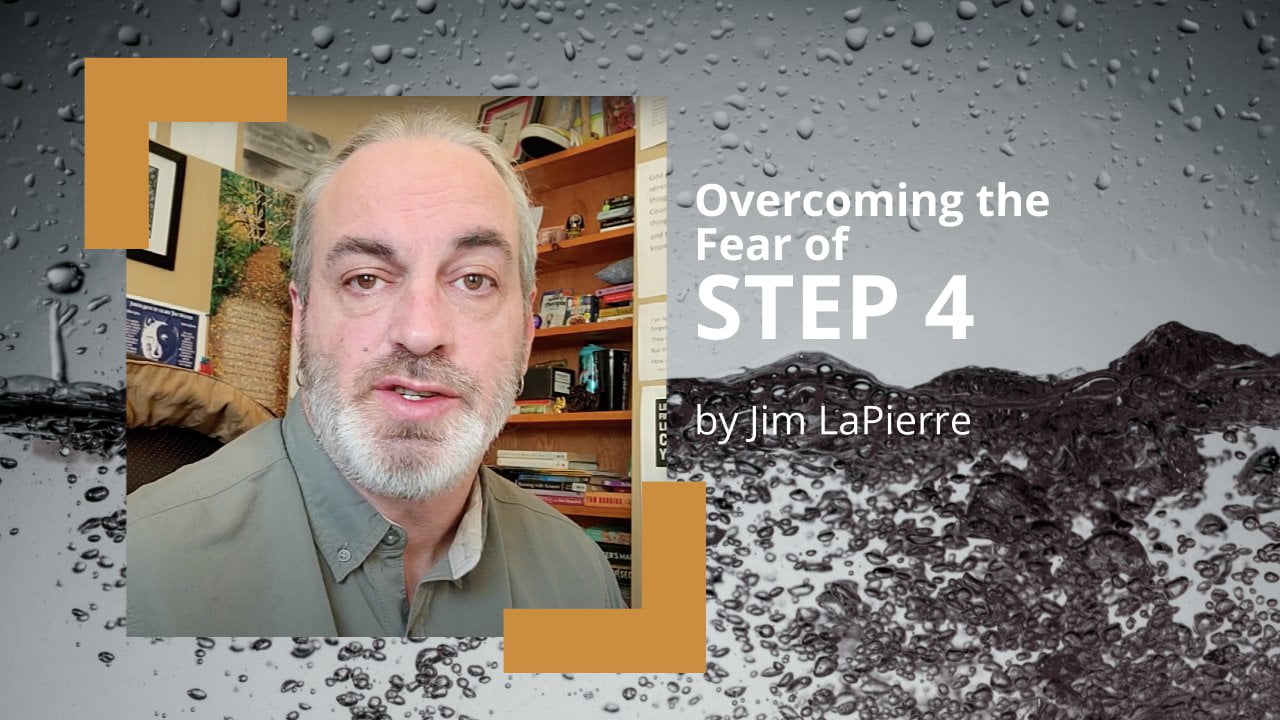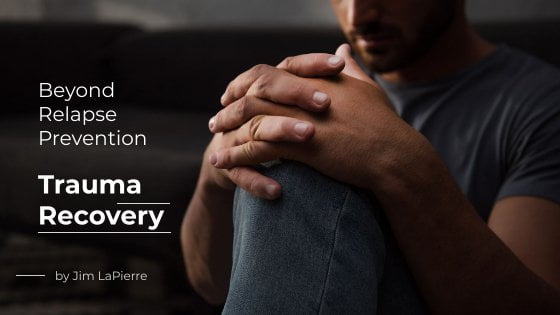In our next livestream, Jim shares some winning strategies for overcoming some of the deepest wounds that trauma and substance use disorder create. Feeling unsafe, unlovable, and not good enough are some of our biggest hurdles. Let’s explore some paths to greater freedom.
The Fear of Commitments (to Ourselves)

We are people who fear making commitments to ourselves. We have been disappointed so often that we came to see it as acceptable to let ourselves down.
Overcoming Hypervigilance in Addiction Recovery

Seeking safety is a spiritual undertaking. It requires connection and a shift in awareness. Hypervigilance is constantly scanning for threats. Serenity is knowing that either no threat currently exists or that we’re equipped to deal with it if there is one. This is not something we can do alone. We need progressively more safe people and safe places.
Overcoming the Fear of Step Four

There’s an adage my friends in AA use to describe the fear of transformation, “One, two, three… drink. One, two, three drink.” This is a reference to working steps 1-3 in recovery, only to return (often briefly) to drinking and using.
Beyond Relapse Prevention: Trauma Recovery

Amongst those who do escape the perils of addiction, other demons remain. Rarely have I met a person in recovery from Substance Use Disorder (SUD) who did not have a great deal of repressed trauma, a wealth of unresolved grief and loss, and underlying mental illness.
The Mythology of Happiness

Happiness is more a state of being than it is an emotion. Gratitude and attitude are the keys. How lovely and disturbing to find that they’re both in our control. Here it comes – another opportunity to get out of our own way.
Learning to “Just Be” – Self-Awareness in Recovery

When you’ve spent years hiding from yourself, it’s really hard to be present with self. Awareness of self is vital to healing, and growth. Simply noticing the things we do to block awareness afford us opportunities for positive change.
Let It Go

We treat letting go and acceptance as though they are once and for all decisions made from what our minds know to be best. In truth, both are emotional processes that are ongoing adjustments.
The Cost of Carrying Resentments in Recovery

Resentments – an insight into the toxic nature of what we carry and the harm it does to us.
Recovery & Traumatic Memories Surfacing

It used to surprise me how many of the trauma survivors I serve enjoy horror movies. It took me a long time to get it. Unlike the imagery in your head, you can make the movie stop anytime you want.


